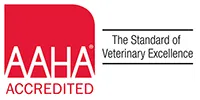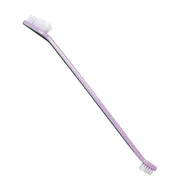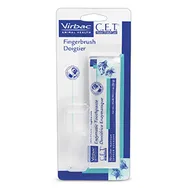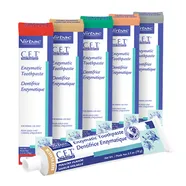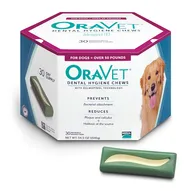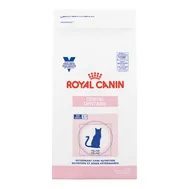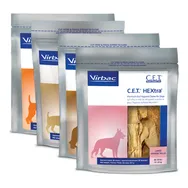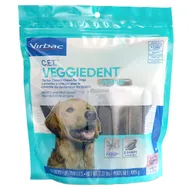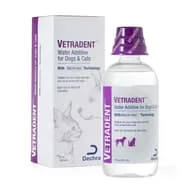Come in to our office to spin the wheel and earn some fun prizes. One family will earn a free dental cleaning for their pet!
While many pet owners know about routine veterinary care like annual check-ups and vaccinations, preventive dental care for pets is an often-overlooked way that pet owners can support their furry family members' long-term health and comfort. Human dentists recommend that we brush twice a day, floss once a day, and receive dental cleanings twice a year. Without comparable regular attention, our pets' teeth will eventually develop plaque and tartar buildup, gingivitis (or gum disease), dental infection, and tooth loss. As time goes on, untreated dental disease can lead to bad breath, discomfort and difficulty chewing, oral infections, and other health complications. While daily brushing and flossing might not be feasible options for every pet, there are many ways for pet owners to maintain dental health and slow the progression of dental disease.
FEBRUARY DENTAL MONTH
In the United States, February is National Pet Dental Health Month. While we encourage pet owners to make dental care a daily activity, the veterinary community has designated each February as an opportunity to highlight the importance of dental care as a part of every pet's well-being. Many veterinary clinics around the country host activities and promotions to educate pet owners about dental health and support routine dental care and cleanings.
Here at The Veterinary Hospital, we celebrate February Dental Health Month by offering a 10% discount on our dental bundle for cleanings scheduled in the month of February. Our dental cleaning bundle includes full-mouth radiographs, which allow our veterinarians to assess any possible need for dental extractions. For more details about dental pricing and to schedule your pet's Dental Health Month cleaning, please contact our office by phone ((541) 688-1835) or e-mail ([email protected]).
The Dental Health Month wheel is coming back for 2022! Stop by our clinic and spin the wheel for a chance to win pet and human dental care products, toys, and a chance at a free dental cleaning. Guests may spin the wheel once a day, and family members are welcome for a turn as well. We're looking forward to seeing you and supporting your pet's dental health!
DENTAL CLEANINGS
A full-mouth dental cleaning performed by a veterinarian is the best form of dental maintenance for your pet's teeth. Veterinary dental cleanings involve the professional scaling and polishing of pets' teeth and are usually done under general anesthesia for the safety of the patient, veterinary staff, and sensitive dental equipment. While this option tends to be a more expensive route for preventive dental care, dental cleanings are the best standard of care as they allow your veterinarian to comprehensively examine your pet's mouth. With the use of general anesthesia, your veterinarian can better assess and treat any dental problems, such as tooth injuries and fractures, tooth root abscesses, tooth decay, and other conditions that can develop over your pet's life. Your veterinarian may also take dental radiographs (or x-rays) of your pet's teeth to help assess dental problems that present below the gumline. Similar to dental cleanings at a human dentist, your veterinarian will clean and scale plaque and tartar off your pet's teeth, and apply dental polish to protect your pet's teeth afterward.
Regular cleanings can be a key part of your pet's preventive dental care plan. The frequency that dental cleanings are needed depends on a variety of factors such as animal breed, home care routines, diet, genetics, previous injuries, and water sources. Most animals will require at least one professional dental cleaning in their lifetime, and some animals may benefit from dental cleanings as often as every 6 to 12 months.
Your pet's dental health and need for a cleaning can be evaluated by your veterinarian at your pet's next exam. Your veterinarian can help you make a long-term plan for dental care and for preventing damage to your pet's teeth. Young animals can also benefit from a dental exam with a veterinarian. Most cats and dogs reach dental maturity around 6 months of age, by which point all their deciduous teeth (or "baby teeth") will typically have fallen out naturally. Your veterinarian can confirm that no retained deciduous teeth need to be extracted to help maintain your pet's dental health into their adult and senior years.
HOME CARE
While a dental cleaning provides the most comprehensive care, regular maintenance at home is a great addition to your pet's routine, and can help prevent the accumulation of plaque and tartar that makes dental cleanings necessary. The Veterinary Oral Health Council, or VOHC, tracks and certifies dental products that meet a tested standard for safety and efficacy. VOHC-approved dental care products are accessible for pet owners to use at home. The VOHC keeps an updated list of accepted products on their website at www.vohc.org, which has products for both dogs and cats, along with additional information about dental health and the prevention of periodontal disease.
BRUSHING
Among the options for home dental care, tooth brushing is the best way to reduce plaque and tartar while promoting gum health. The mechanical action of brushing teeth helps to remove plaque from the surface of the tooth's enamel and the gumline, where plaque causes irritation that leads to gingivitis. Pet-specific toothbrushes are shaped a bit different from human toothbrushes. Depending on what is easiest to use, there are brushes with small bristle heads and long handles to help reach the back molars of small animals' mouths, or finger brushes with bristles built into the design. Human toothbrushes can also be used for larger dogs' teeth, provided the brush has soft bristles to gently clean your pet's teeth and gums.
Toothpastes manufactured specifically for pets should be used as human toothpaste contains ingredients that are toxic to dogs and cats, such as xylitol. When picking out a toothpaste for your pet, products with the VOHC seal are the gold standard, and a list of approved options can be viewed on the VOHC's website.
While brushing is the best option for your pet's dental health, your pet may not be thrilled about the prospect of having their teeth brushed. When possible, introducing dogs and cats to regular tooth brushing from a young age can help acclimate them and make them comfortable with the process of having their mouth handled and teeth brushed. When teaching older pets to tolerate tooth brushing, it is important that they have their mouth evaluated by a veterinarian prior to starting care. If they already have dental pain, attempts to brush their teeth may cause your pet to resist your efforts. Once your veterinarian determines your pet is ready to practice brushing, it may help to start small by handling their mouth, pulling back their lips, or using a dental wipe to get them used to having their teeth gently scrubbed, and eventually work up to brushing with toothpaste. It is important to consider the individual pet before introducing tooth brushing to their routine—if your pet struggles with having their mouth handled or may attempt to bite, other dental care options may be safer and less upsetting for both pet and owner.
DIET
Another major consideration for home dental care is diet. Similar to brushing, chewing on crunchy food or dental treats provides mechanical action to scrape plaque off the surface of the tooth. Considering the dietary component to dental care can help provide a less invasive route to maintaining healthy teeth. The VOHC certifies a number of diets, chews, and treats that can help with managing plaque and tartar, and can serve as a great option for pets who are food-motivated. While diet or oral care treats can help with dental health, the shape of dog and cat mouths makes it easy for food to get caught in the teeth after eating, so dietary dental care is most effective when combined with regular brushing to clean away food debris.
For pets eating a prescription diet and pets with food allergies, dental diets or oral care treats may not be the best fit. It is recommended to consult your pet's veterinarian if you have questions about making dietary changes, or to discuss how you might be able to introduce dietary dental care options to pets with prescription diets or allergies.
ADDITIONAL METHODS
Outside of brushing, diet, and dental treats, there are several other options that pet owners have for promoting good dental health for their furry friends. These methods can all help improve pets' breath and supplement a regular dental care routine.
Dental wipes may work well for pets who don't mind having their mouths handled a bit, but for whom brushing is not an option. The VOHC certifies dental wipes that can help to wipe away food debris and slow the buildup of plaque. Dental wipes have limitations in their ability to reach all the crevices in canine and feline teeth, but may still be beneficial when used routinely by reducing bacterial loads in the mouth.
Dental gels and sprays are another option for pets who can tolerate some handling of the mouth. These products are applied to the teeth and gums to help prevent the accumulation of bacteria and plaque. While these options lack a mechanical component to clear away plaque, they may help improve routine dental care for certain pets, especially when used in combination with other methods. A number of dental gels and sprays are certified by the VOHC for owners interested in adding these to their pet's dental care routine.
Dental water additive is another approach to dental care that can help pets who cannot tolerate mouth handling, and also works well alongside other dental care practices. Dental water additives can be mixed into your pet's water according to manufacturer instructions to promote dental maintenance by reducing bacteria populations in the mouth. Similar to how the drinking water supply in some areas is treated with fluoride to slow tooth decay in people, introducing a dental additive to your pet's drinking water can provide passive dental support in their daily routine. For recommendations on dental water additives, the VOHC lists certified options that are safe and effective for pets.
If you have questions about whether any of these options are the right choice for your pet, please consult your veterinarian before introducing these products to your pet's routine.
Here are links to some of our favorite home care dental products that are safe and effective for your pets:

